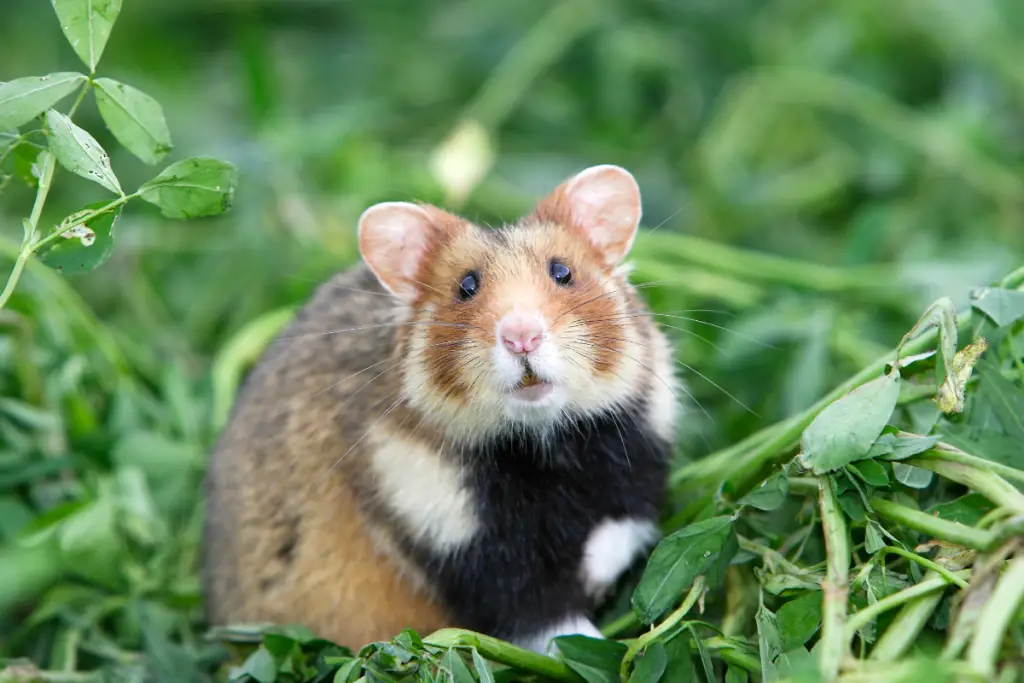Are you thinking about getting a hamster as a pet? Hamsters are adorable and cuddly, making them popular pets for children and adults. They are low-maintenance pets that don’t require a lot of space, making them an excellent choice for those who live in smaller homes or apartments.
However, before you choose a hamster as your furry companion, it’s essential to understand their temperament. While hamsters are generally friendly and easy to tame with proper handling and adult supervision, some breeds can be more territorial than others. Syrian hamsters, for example, are known to be more solitary and may not get along with other hamsters. Chinese hamsters, on the other hand, are more social and can live in pairs or small groups.
In addition to their temperament, it’s essential to consider the supplies and care hamsters require. Hamsters need a cage with proper ventilation, a water bottle, a food dish, and an exercise wheel. They also require enrichment in the form of toys and opportunities for burrowing and climbing. While hamsters are generally inexpensive pets, it’s important to budget for vet bills and dedicate time and effort to their care. Feeding and cleaning schedules are also important to maintain health and prevent illnesses like salmonella and lymphocytic choriomeningitis.
Table of Contents
Benefits of Owning a Hamster
Hamsters are popular pets and for a good reason. A hamster might be an excellent option if you are considering getting a pet. Here are some benefits of owning a hamster:
Companionship
Hamsters are great companions. They are social animals and enjoy interacting with their owners. They are also adorable and can provide you with endless entertainment. They are known to be very affectionate and form strong bonds with their owners.
Low-Maintenance
Hamsters are low-maintenance pets. They do not require much attention and are easy to take care of. They are also very clean animals and groom themselves regularly. You only need to clean their cage once a week, and they do not require daily walks like dogs.
Affordability
Hamsters are relatively inexpensive pets. They likewise do not require expensive food or toys. You can get a hamster for as little as $5-$10, and their cage will set you back around $50-$150. This is a one-time purchase, and you may even be able to get a used cage in good condition for much less.
Hamsters are also great for people who live in small apartments or have limited space. They do not take up a lot of room and can be kept in a cage. They are also very quiet animals and will not disturb your neighbors.
In addition, hamsters are very active animals and enjoy running in their exercise wheel and playing with their toys. Watching them can provide endless entertainment and give you a reason to smile daily.
Overall, hamsters are great pets for people who want companionship, low maintenance, and affordability. They are cute, fun, and easy to take care of. If you are considering getting a pet, a hamster might be the perfect addition to your family.
Choosing the Right Hamster

If you’re considering getting a hamster as a pet, remember a few things when choosing which one. Here are some factors to consider:
Breeds
There are several breeds of hamsters to choose from, including Syrian, Russian Dwarf, and Chinese. Syrian hamsters are the most commonly kept as pets and are known for being friendly and sociable. Russian Dwarf hamsters are also friendly but can be more active and require more space. Chinese hamsters are less common and can be more challenging to care for.
Personality Traits
Each hamster has its own personality, so spending some time with them before choosing one is essential. Look for a hamster that is curious, active, and friendly towards you. Avoid hamsters that are aggressive or shy.
Care Requirements
Hamsters are relatively easy to care for but require some attention and effort. Here are some care requirements to consider:
- Feeding: Hamsters need a balanced diet of pellets, seeds, and fresh fruits and vegetables.
- Housing: Hamsters need a cage large enough to move around and play in, with plenty of bedding and toys.
- Schedule: Hamsters are nocturnal animals that are most active at night. Give them plenty of time to play and exercise during the evening.
- Health: Keep an eye on your hamster’s health and take them to the vet if you notice any signs of illness or discomfort.
Overall, hamsters can make fantastic pets if you choose the right one for you or your family. They are furry companions that can provide hours of entertainment and affection. Just make sure to do your research and choose a hamster that fits your lifestyle and personality.
Caring for Your Hamster
When caring for your hamster, there are several important factors to consider. In this section, we will go over housing, feeding, exercise, enrichment, and taming.

Housing
Hamsters need a safe and comfortable place to call home. A cage with proper ventilation and enough space for your hamster to move around is essential. Hamsters are burrowing animals, so they need bedding that allows them to dig and create tunnels. Aspen shavings or paper-based bedding are good options. Avoid cedar or pine shavings, which can harm your hamster’s respiratory system.
Feeding
Hamsters are omnivores and need a balanced diet. A good quality hamster food mix should make up the bulk of their diet. You can supplement your diet with fresh fruits and vegetables like carrots, broccoli, and apples. Avoid feeding your hamster sugary or fatty treats. Ensure your hamster has access to fresh water, provided through a water bottle and a food dish.
Exercise
Hamsters are active creatures and need plenty of exercise. A hamster wheel is a terrific way for your hamster to burn off energy. You can also provide a hamster ball for them to run around in, but be sure to supervise them while they are in the ball. As pointed out earlier, hamsters are nocturnal and are most active at night. Make sure to provide opportunities for exercise during their active hours.
Enrichment
Enrichment is critical for keeping your hamster mentally stimulated and happy. Provide plenty of toys, such as chew toys, tunnels, and climbing structures. You can also provide opportunities for foraging by hiding food around their cage. Hamsters also enjoy exploring new environments, so you can create a play area outside of their cage for them to explore.
Taming
Hamsters can be friendly pets but need time to adjust to their new environment and trust their owner. Start by offering your hamster treats from your hand and speaking to them in a calm and gentle voice. Once they are comfortable with this, you can begin to handle them more frequently. Always be gentle and avoid sudden movements. Adult supervision is recommended when children are handling hamsters.
Caring for your hamster requires attention to their housing, feeding, exercise, enrichment, and taming needs. With proper care, your hamster can be a happy and friendly pet.
Health Concerns
While hamsters are generally healthy pets, they can carry diseases that can be transmitted to humans. When it comes to owning a hamster, there are some health concerns you should be aware of. This section will discuss some of the most common health concerns associated with hamsters.
Lymphocytic Choriomeningitis
Lymphocytic choriomeningitis (LCM) is a viral disease carried by some hamsters. It can be transmitted to humans through contact with contaminated urine, droppings, or saliva. Symptoms of LCM in humans include fever, headache, muscle aches, and vomiting. In severe cases, it can lead to meningitis or encephalitis.
To prevent the spread of LCM, washing your hands thoroughly after handling your hamster or cleaning its cage is essential. If you suspect your hamster has LCM, immediately take it to a veterinarian.
Salmonella
Hamsters can also carry salmonella, a type of bacteria that can cause diarrhea, fever, and abdominal cramps in humans. Salmonella is usually transmitted through contact with contaminated feces, but it can also be found in the saliva and fur of infected animals.
To prevent the spread of salmonella, it is necessary to wash your hands thoroughly after handling your hamster or cleaning its cage. You should also avoid kissing or snuggling with your hamster, as this can increase your risk of infection.
Hantavirus
Hantavirus is a rare but severe disease that can be transmitted to humans through contact with infected rodents, including hamsters. Symptoms of Hantavirus in humans include fever, muscle aches, and shortness of breath. In severe cases, it can lead to respiratory failure and death.
To prevent the spread of Hantavirus, washing your hands thoroughly after handling your hamster or cleaning its cage is important. You should also avoid sweeping or vacuuming up hamster droppings, as this can release the virus into the air.
Vet Bills
Like all pets, hamsters can get sick or injured. If your hamster needs veterinary care, it can be expensive. Before getting a hamster, you should be prepared to cover the cost of veterinary care, including check-ups, vaccinations, and treatment for illnesses or injuries.
Short Lifespan
Hamsters have a relatively short lifespan, typically living for 2-3 years. While this can be a positive for some owners who prefer shorter-term commitments, it can be challenging to say goodbye to a beloved pet after such a short time.
In summary, while hamsters can make amazing pets, one must be aware of the potential health concerns associated with owning one. By taking proper precautions and being prepared for the cost of veterinary care, you can help ensure your hamster stays healthy and happy for as long as possible.





No Comments